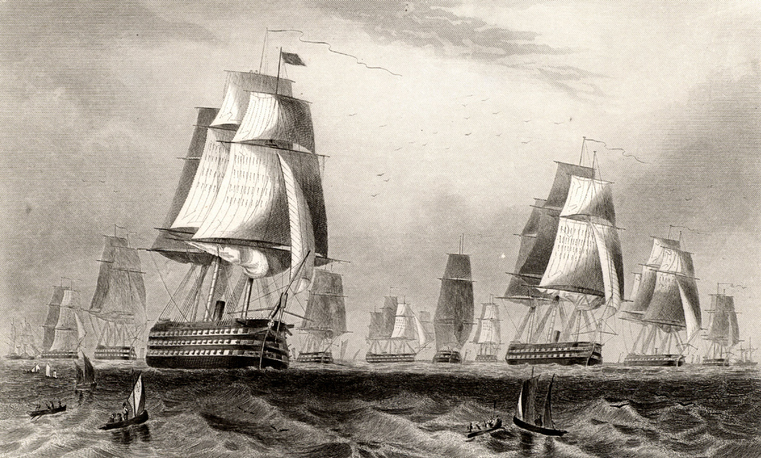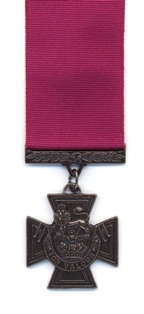This month in history: The Crimean War and the 1856 Treaty of Paris
On 30 March 1856, the Treaty of Paris of 1856 was signed at the Congress of Paris, officially ending the Crimean War. The “Signature of Peace” was announced in The Gazette the following day. As part of our ‘This month in history’ series, we look at the Crimean War, as documented in The Gazette.

When did the Crimean War take place?
The Crimean War took place from 16 October 1853 to 30 March 1856 and was fought mainly on the Crimean Peninsula between the Russian Empire and an alliance made up of the Ottoman Empire, the Second French Empire, the British Empire and the Kingdom of Sardinia.
How did the Crimean War start?
By the 1850s, the Ottoman Empire was in decline – at least according to Tsar Nicholas I of Russia. Referring to the Empire as the ‘sick man’ (the words ‘of Europe’ were added to the phrase years later), the Tsar believed he would have the support of Prussia, Austria and Great Britain should he carve up the western region of Turkey.
In early 1853, the Tsar sent a diplomat, Prince Menshikov, on a mission to the Ottoman Sublime Porte where he would demand Russian sovereignty over the 12 million Orthodox Christians in the Ottoman Empire. While a compromise was reached, Sultan Abdulmejid I, supported by the British ambassador, rejecting the sweeping demand. Russia soon mobilised and invaded the Danubian Principalities (modern Romania) to pressure Istanbul. In response, the Ottoman Empire declared war in October 1853.
Initially, European powers wanted to find diplomatic resolution to the conflict for contrasting reasons. The British, for example, wanted to avoid war but also to maintain trade with Turkey and restrict Russia’s advance in Asia. The representatives of the four neutral ‘Great Powers’ (Great Britain, France, Austria and Prussia) therefore drafted an ultimatum to both the Russians and the Ottomans. Nicholas I approved the first proposal, however Abdulmejid I felt it was too open to interpretation. A second proposal was drafted by Great Britain, France and Austria, but the suggestions were ignored by Russia.
Following the aftermath of the Battle of Sinop on 30 November 1853, where Russia defeated the Ottomans in one of the most one-sided naval battles in history, Great Britain and France declared war in defence of the Sultan on 28 March 1854 (Gazette issue 21536). Fearing the Austrians would also declare war, the Russians soon withdrew troops from the Danubian principalities. The Kingdom of Sardinia later joined the war effort in 1855 to gain favour with the French.
How did The Gazette record the Crimean War?
From the Declaration of War to the Treaty of Paris and beyond, The Gazette recorded the events of the Crimean War through despatches, promotions and awards announcements. The Gazette’s publications, alongside other media’s coverage, meant that the Crimean War is considered one of the first modern wars, in that the general public could receive timely and accurate updates of events.
The first despatches of the Crimean War came from the commanders of the fleets in
the Black Sea and the Baltic. The report comments on ships flying a flag of truce
being fired upon at Odessa in an “uncivilized act of aggression” (Gazette issue 21552). Extraordinary supplements of The Gazette, providing war updates, were published
during the Crimean War for:
- Battle of the Alma (Gazette issue 21600)
- Battle of Balaklava (Gazette issue 21607)
- Battle of Inkerman (Gazette issue 21618, Gazette issue 21620, Gazette issue 21623, Gazette issue 21627, Gazette issue 21631 and Gazette issue 21639)
- Siege of Kars (Gazette issue 21813)
What is the Treaty of Paris (1856)?
The Treaty of Paris was signed on 30 March 1856 and ended the Crimean War. The Treaty was announced in The London Gazette Extraordinary the following day (Gazette issue 21865). Describing it as a “Signature of Peace”, the supplement read:
“The Plenipotentiaries of Great Britain, of Austria, of France, of Prussia, of Russia, of Sardinia, and of Turkey, have affixed their signatures to the Treaty which puts an end to the War; and which, while definitively settling the Eastern question, establishes the tranquillity of Europe on solid and durable bases.”
By the end of the Crimean War, around 250,000 soldiers from the Ottoman, French, British and Sardinian alliance had died, while it’s estimated that around half a million from the Russian Empire also lost their lives, primarily from disease and neglect.
The treaty guaranteed the independence of Turkey and made the Black Sea neutral territory, closing it to all warships and prohibiting firearms on its shores. Russia was also obliged to surrender Bessarabia, a region located at the mouth of the Danube.
The Treaty of Paris was signed by:
- Alexandre Colonna-Walewski (France)
- François-Adolphe de Bourqueney (France)
- Count Karl Ferdinand von Buol (Austria)
- Count Joseph Alexander Hübner (Austria)
- George Villiers, 4th Earl of Clarendon (Great Britain)
- Henry Wellesley, 1st Earl Cowley (Great Britain)
- Otto Theodor von Manteuffel (Prussia)
- Maximilien von Hatzfeldt (Prussia)
- Alexey Fyodorovich Orlov (Russian Empire)
- Philipp von Brunnow (Russian Empire)
- Camillo Benso, Count of Cavour (Kingdom of Sardinia)
- Salvatore Pes di Villamarina (Kingdom of Sardinia)
- Mehmed Emin Aali (Ottoman Empire)
- Mehmed Cemil Bey (Ottoman Empire)
The treaty was ratified within a month, and in April, it was announced in The Gazette (Gazette issue 21877) that a day of thanksgiving ‘on Sunday the fourth day of May next’ would take place.

When was the Victoria Cross established?
To recognise the valour of those who fought in the Crimean War, Queen Victoria established the Victoria Cross, to date the highest military decoration. Awarded for valour and devotion to duty in the face of the enemy to members of the armed forces, regardless of rank, it was announced in The Gazette on 5 February 1856 (Gazette issue 21846) with the words:
“The Queen has been pleased, by an instrument under Her Royal Sign Manual, of which the following is a copy, to institute and create a new Naval and Military Decoration, to be styled and designated “The Victoria Cross"”
The Victoria Cross was awarded to numerous members of the Armed Forces who fought in the Crimean War, with recipients announced in supplements of The Gazette:
See also
This month in history: The funeral of Lord Horatio Nelson
This month in history: Edward VIII abdication crisis
The Crimean War: despatches, promotions and awards
Image: Getty Images
Publication date: 5 March 2020
